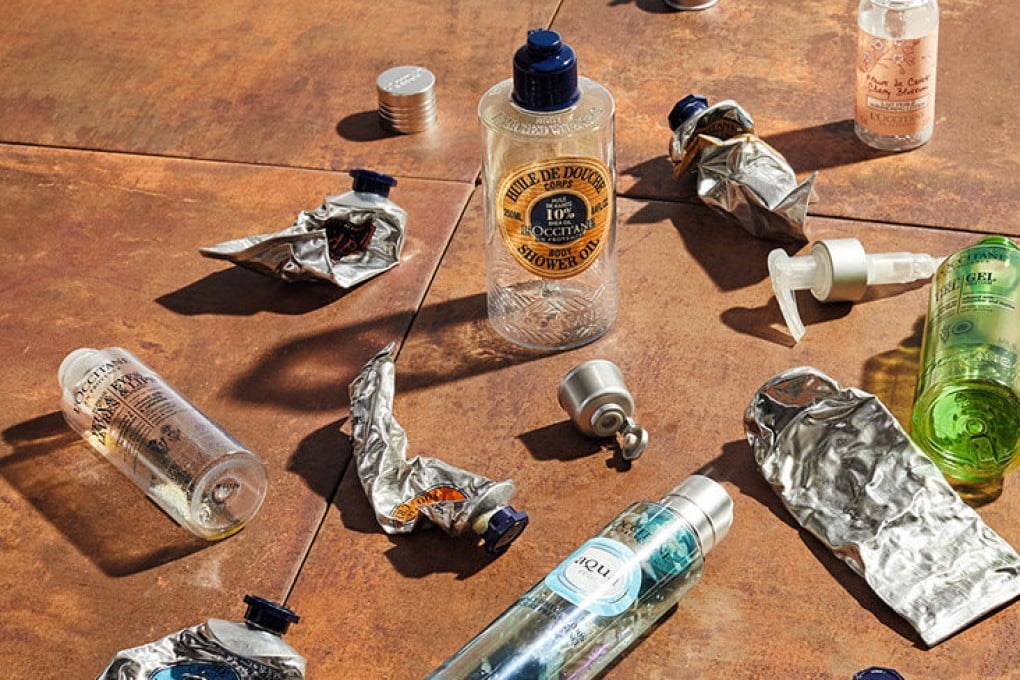Advertisement
‘Naked’ soap, refillable lipstick: to use less plastic, the beauty industry pivots to recycling and refill options
- L’Occitane has launched recycling and refill options, Dior has a refillable bottle for one of its fragrances, and Lush sells wrapper-free soaps and shampoo bars
- Major beauty companies are responding to growing customer awareness of the importance of environmental and ethical issues
Reading Time:4 minutes
Why you can trust SCMP
1

As plastics horror stories pile up, consumers across the world are turning away from the modern convenience of plastic packaging – or at least trying to avoid single-use plastic as much as they can.
There have been too many dead whales found full of disposable bags and bottles; river mouths choked with trash that never rots; beaches carpeted with plastic rubbish. The mood has shifted, and sustainability is becoming a watchword.
The beauty industry, once a massive user of plastic sachets, packs, bottles and tubes, is sensing a shift in attitudes, and the big swing to recycle and refill options is building momentum.
Advertisement
British brand The Body Shop has declared it wants refillable bottles and containers to become mainstream, and began introducing filler stations in its shops worldwide in April 2021. Six are planned for Hong Kong this year.

The French beauty company L’Occitane has launched recycling and refill options for many of its products, and luxury French brand Dior – which says its “thoughts are centred on everything that can be modified or optimised in packaging, formulation, transportation, practices and usage” – has introduced a refillable bottle for its Sauvage men’s fragrance.
Advertisement
Advertisement
Select Voice
Choose your listening speed
Get through articles 2x faster
1.25x
250 WPM
Slow
Average
Fast
1.25x